![]() Here is this week’s news of grants or gifts to historically Black colleges and universities or for programs of particular interest to African Americans in higher education.
Here is this week’s news of grants or gifts to historically Black colleges and universities or for programs of particular interest to African Americans in higher education.
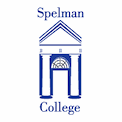 Two Spelman College alumnae and sisters, Erin Johnson Tolefree and Cara Johnson Hughes have made two gifts on behalf of their family business, Baldwin Richardson Foods. Over a period of 10 years, the Baldwin Richardson Annual Scholarship, established at $1.5 million, will provide a first-year student with a full tuition package for their entire undergraduate education at Spelman. The second gift, established at $100,000, will provide first-year students with supplemental tuition. The alumnae’s “generosity expands Spelman’s ability to develop Black women who can take advantage of programs like Spelpreneur, a four-year initiative that fosters entrepreneurship and innovation. We are grateful to these alumnae leaders who recognize the necessity of investing in the education of women who will create and lead innovative businesses across a spectrum of industries,” said Spelman President Mary Schmidt Campbell. Tolefree and Hughes both hold bachelor’s degrees in economics from Spelman College.
Two Spelman College alumnae and sisters, Erin Johnson Tolefree and Cara Johnson Hughes have made two gifts on behalf of their family business, Baldwin Richardson Foods. Over a period of 10 years, the Baldwin Richardson Annual Scholarship, established at $1.5 million, will provide a first-year student with a full tuition package for their entire undergraduate education at Spelman. The second gift, established at $100,000, will provide first-year students with supplemental tuition. The alumnae’s “generosity expands Spelman’s ability to develop Black women who can take advantage of programs like Spelpreneur, a four-year initiative that fosters entrepreneurship and innovation. We are grateful to these alumnae leaders who recognize the necessity of investing in the education of women who will create and lead innovative businesses across a spectrum of industries,” said Spelman President Mary Schmidt Campbell. Tolefree and Hughes both hold bachelor’s degrees in economics from Spelman College.
 Researchers from the University of Kentucky have received a grant from the National Institutes of Health to study the causes of increasing rates of breast cancer among African women in Nigeria, and to identify why African and African American women in the United States tend to develop aggressive subtypes of the disease. The research team aims to understand the role of epigenetics, a marker of both genetic background and environmental factors, in the development of breast cancer. They hope to use their findings to create prevention strategies and more effective treatment for the disease.
Researchers from the University of Kentucky have received a grant from the National Institutes of Health to study the causes of increasing rates of breast cancer among African women in Nigeria, and to identify why African and African American women in the United States tend to develop aggressive subtypes of the disease. The research team aims to understand the role of epigenetics, a marker of both genetic background and environmental factors, in the development of breast cancer. They hope to use their findings to create prevention strategies and more effective treatment for the disease.
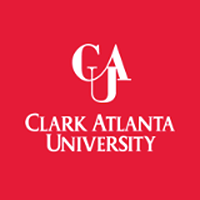 Historically Black Clark Atlanta University in Georgia has received two monetary donations from local chapters of National Pan Hellenic Council organizations, Omega Psi Phi, Inc. and Delta Sigma Theta, Inc. Each organization donated $100,000 to the university to go towards scholarships. Clark Atlanta President Dr. Ronald Johnson said, “We thank the Beta Psi chapter of Omega Psi Phi, Inc. and the Sigma chapter of Delta Sigma Theta, Inc. for their generous support of this beloved institution. The ongoing cultural production and community work of these two organizations embodies the legacy of our dual mottos: ‘Culture for Service” and ‘Find a Way or Make One.”
Historically Black Clark Atlanta University in Georgia has received two monetary donations from local chapters of National Pan Hellenic Council organizations, Omega Psi Phi, Inc. and Delta Sigma Theta, Inc. Each organization donated $100,000 to the university to go towards scholarships. Clark Atlanta President Dr. Ronald Johnson said, “We thank the Beta Psi chapter of Omega Psi Phi, Inc. and the Sigma chapter of Delta Sigma Theta, Inc. for their generous support of this beloved institution. The ongoing cultural production and community work of these two organizations embodies the legacy of our dual mottos: ‘Culture for Service” and ‘Find a Way or Make One.”
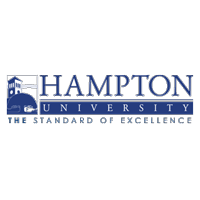 Historically Black Hampton University in Virginia has received a $1 million grant from Lilly Endowment Inc. to help establish the Pastoral Renewal Initiative for Ministerial Excellence program. The new program is a three-year Christian pastoral education and clergy development program designed to strengthen and expand the current Church Development and Leadership Academy inclusive of the Church Music Guild and Academy of Leaders of Worship. Each participant in the program will be required to develop and implement an innovative project that they are passionate about, which the grant will fund.
Historically Black Hampton University in Virginia has received a $1 million grant from Lilly Endowment Inc. to help establish the Pastoral Renewal Initiative for Ministerial Excellence program. The new program is a three-year Christian pastoral education and clergy development program designed to strengthen and expand the current Church Development and Leadership Academy inclusive of the Church Music Guild and Academy of Leaders of Worship. Each participant in the program will be required to develop and implement an innovative project that they are passionate about, which the grant will fund.
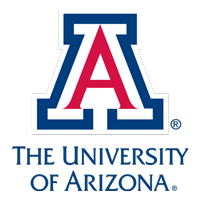 The University of Arizona has received a $1,075,000 grant from the National Science Foundation that will allow the university to support underrepresented students through the Bridge to Doctorate program. The program is designed to prepare minority students in STEM fields to enter competitive doctoral programs. Participants in the program are provided with financial assistance as well as opportunities for professional development such as coaching on scientific writing and assistance with applications for federal fellowships.
The University of Arizona has received a $1,075,000 grant from the National Science Foundation that will allow the university to support underrepresented students through the Bridge to Doctorate program. The program is designed to prepare minority students in STEM fields to enter competitive doctoral programs. Participants in the program are provided with financial assistance as well as opportunities for professional development such as coaching on scientific writing and assistance with applications for federal fellowships.
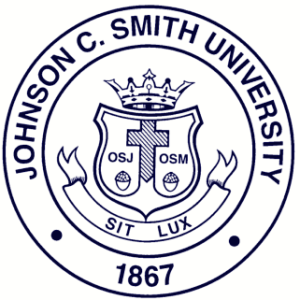 Historically Black Johnson C. Smith University in Charlotte, North Carolina, has received a $325,000 investment from Blue Cross and Blue Shield of North Carolina to expand the university’s Sustainability Village. The Sustainability Village was created in 2013 to address food access issues in the Northwest Corridor of Charlotte. It contains a greenhouse, aquaponics facility, and hydroponics garden. The investment will fund the construction of three new buildings and support year-round harvests to benefit West Charlotte communities.
Historically Black Johnson C. Smith University in Charlotte, North Carolina, has received a $325,000 investment from Blue Cross and Blue Shield of North Carolina to expand the university’s Sustainability Village. The Sustainability Village was created in 2013 to address food access issues in the Northwest Corridor of Charlotte. It contains a greenhouse, aquaponics facility, and hydroponics garden. The investment will fund the construction of three new buildings and support year-round harvests to benefit West Charlotte communities.
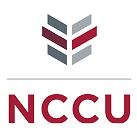 Historically Black North Carolina Central University in Durham has received a $1 million grant from the National Science Foundation to expand its capabilities in experimental nuclear astrophysics. The funds will support the university’s research infrastructure and novel investigations into the properties of neutron stars by studying the behavior of nuclear excitations, which are modes of nuclear vibrations. Additionally, the university will use the grant money to acquire specialized equipment to enable student and faculty researchers to develop data acquisition tools and analyze data from their experiments.
Historically Black North Carolina Central University in Durham has received a $1 million grant from the National Science Foundation to expand its capabilities in experimental nuclear astrophysics. The funds will support the university’s research infrastructure and novel investigations into the properties of neutron stars by studying the behavior of nuclear excitations, which are modes of nuclear vibrations. Additionally, the university will use the grant money to acquire specialized equipment to enable student and faculty researchers to develop data acquisition tools and analyze data from their experiments.
 An alliance between Northeastern University and Middlesex Community College in Boston has received a $4.4 million grant from the National Science Foundation for a program that will provide minority students with a fast track to earn their associate’s, bachelor’s, and master’s degrees in biotechnology and prepare them for careers in life sciences. Participants in the program will earn their associate’s degrees from Middlesex’s biotechnology technician program. Next, they can transfer to Northeastern to earn their bachelor’s degrees in biotechnology and after that, they can apply to the “PlusOne” biotechnology master’s program. Throughout their academic career, participating students will be provided with financial support, career advising, and internship and research opportunities.
An alliance between Northeastern University and Middlesex Community College in Boston has received a $4.4 million grant from the National Science Foundation for a program that will provide minority students with a fast track to earn their associate’s, bachelor’s, and master’s degrees in biotechnology and prepare them for careers in life sciences. Participants in the program will earn their associate’s degrees from Middlesex’s biotechnology technician program. Next, they can transfer to Northeastern to earn their bachelor’s degrees in biotechnology and after that, they can apply to the “PlusOne” biotechnology master’s program. Throughout their academic career, participating students will be provided with financial support, career advising, and internship and research opportunities.
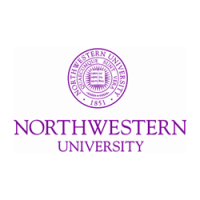 Northwestern University’s School of Engineering in Illinois has launched a new center focused on the development and commercialization of point-of-care technologies critical for improved management of HIV-infected individuals in Africa. The Center for Innovation in Point-of-Care Technologies for HIV/AIDS at Northwestern University (C-THAN) is funded by a $7.5 million grant from the National Institute of Biomedical Imaging and Bioengineering, Fogarty International Center, and the Office of AIDS Research within the National Institutes of Health. C-THAN will work with university partners in Africa to develop technologies that can better detect and monitor HIV in patients across the continent. Additionally, the center will support training opportunities for technology developers and evaluators so they can lead testing at clinical validation sites in the field.
Northwestern University’s School of Engineering in Illinois has launched a new center focused on the development and commercialization of point-of-care technologies critical for improved management of HIV-infected individuals in Africa. The Center for Innovation in Point-of-Care Technologies for HIV/AIDS at Northwestern University (C-THAN) is funded by a $7.5 million grant from the National Institute of Biomedical Imaging and Bioengineering, Fogarty International Center, and the Office of AIDS Research within the National Institutes of Health. C-THAN will work with university partners in Africa to develop technologies that can better detect and monitor HIV in patients across the continent. Additionally, the center will support training opportunities for technology developers and evaluators so they can lead testing at clinical validation sites in the field.
 Historically Black Winston-Salem State University in North Carolina has received $2.3 million in grants from the National Science Foundation to help expand research opportunities for the school’s undergraduate students. The grants will provide stipends for about 35 WSSU undergraduate students each year to conduct paid research, fund dozens of classroom research projects, and support paid research for graduate students. The funding will support research in chemistry, cybersecurity, biophysics, biology, psychology and STEM education.
Historically Black Winston-Salem State University in North Carolina has received $2.3 million in grants from the National Science Foundation to help expand research opportunities for the school’s undergraduate students. The grants will provide stipends for about 35 WSSU undergraduate students each year to conduct paid research, fund dozens of classroom research projects, and support paid research for graduate students. The funding will support research in chemistry, cybersecurity, biophysics, biology, psychology and STEM education.
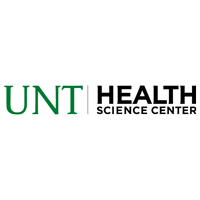 The University of North Texas Health Science Center has received a $2.2 million grant from the National Cancer Institute to fund a partnership with historically Black Langston University in Oklahoma that will pair about 40 Langston students with one of two research projects at UNTHSC. The two research projects aim to address the high rates of breast and prostate cancer among African-Americans in Texas.
The University of North Texas Health Science Center has received a $2.2 million grant from the National Cancer Institute to fund a partnership with historically Black Langston University in Oklahoma that will pair about 40 Langston students with one of two research projects at UNTHSC. The two research projects aim to address the high rates of breast and prostate cancer among African-Americans in Texas.
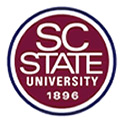 Historically Black South Carolina State University, in partnership with Clemson University, has received a $1.28 million grant from the United States Department of Agriculture to implement STEM curriculum in after-school programs in Allendale, Anderson, and Jasper counties. Historically, the communities in these counties have had some of the highest poverty and illiteracy rates in the state of South Carolina. This grant will provide students in grades three through eight with two after-school STEM curriculum sessions per week during the academic year and a technology camp during the summer months.
Historically Black South Carolina State University, in partnership with Clemson University, has received a $1.28 million grant from the United States Department of Agriculture to implement STEM curriculum in after-school programs in Allendale, Anderson, and Jasper counties. Historically, the communities in these counties have had some of the highest poverty and illiteracy rates in the state of South Carolina. This grant will provide students in grades three through eight with two after-school STEM curriculum sessions per week during the academic year and a technology camp during the summer months.
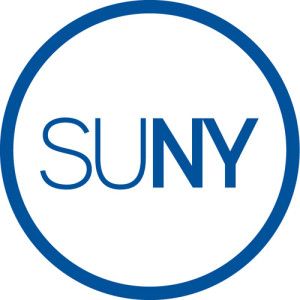 The State University of New York Downstate Medical Center in Brooklyn has received a $3.2 million grant from the Health Resources and Services and Administration to fund the center’s Comprehensive National Health Careers Opportunity Program (HCOP) Academy. The HCOP Academy will work to attract, recruit, and retain economically and educationally disadvantaged students from Brooklyn. “We’re delighted to partner with our colleagues to address the need for STEM pipeline programs,” said SUNY Downstate president Wayne J. Riley. “As the only academic medical center in Brooklyn, we are committed to empowering the next generation of medical professionals and providing opportunities for underrepresented students while promoting diversity in health care. This HRSA grant affords us opportunities to reach students who might otherwise not have considered the variety of career paths healthcare offers.”
The State University of New York Downstate Medical Center in Brooklyn has received a $3.2 million grant from the Health Resources and Services and Administration to fund the center’s Comprehensive National Health Careers Opportunity Program (HCOP) Academy. The HCOP Academy will work to attract, recruit, and retain economically and educationally disadvantaged students from Brooklyn. “We’re delighted to partner with our colleagues to address the need for STEM pipeline programs,” said SUNY Downstate president Wayne J. Riley. “As the only academic medical center in Brooklyn, we are committed to empowering the next generation of medical professionals and providing opportunities for underrepresented students while promoting diversity in health care. This HRSA grant affords us opportunities to reach students who might otherwise not have considered the variety of career paths healthcare offers.”
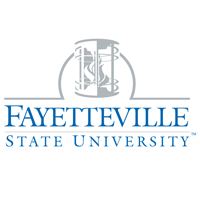 Historically Black Fayetteville State University in North Carolina is one of 38 higher education institutions and the only North Carolina HBCU, to receive funding from the United States Department of Education to help students dealing with restoration and recovery efforts caused by Hurricane Florence in September. The funding comes from the Department’s Federal Supplemental Educational Opportunity Grant program. “Our hearts go out to the thousands of students in North Carolina whose lives were impacted by Hurricane Florence,” said Secretary Betsy DeVos. “The Department will continue to do all that it can to assist students, faculty and institutions in the Carolinas as they work to recover from this disaster.”
Historically Black Fayetteville State University in North Carolina is one of 38 higher education institutions and the only North Carolina HBCU, to receive funding from the United States Department of Education to help students dealing with restoration and recovery efforts caused by Hurricane Florence in September. The funding comes from the Department’s Federal Supplemental Educational Opportunity Grant program. “Our hearts go out to the thousands of students in North Carolina whose lives were impacted by Hurricane Florence,” said Secretary Betsy DeVos. “The Department will continue to do all that it can to assist students, faculty and institutions in the Carolinas as they work to recover from this disaster.”
 California State University, Dominguez Hills has been awarded a $4.5 million grant from the United States Department of Education to increased the number of participating low-income students from the Compton Unified School District in a program to help them prepare for college. Through the GEAR UP program, faculty and staff from Cal State Dominguez Hills will create academic programs for underserved students starting in 7th grade and continuing through their high school graduation. The program will focus on STEM learning as well as personal finance and economics. Additionally, the grant will provide college scholarships for low-income students.
California State University, Dominguez Hills has been awarded a $4.5 million grant from the United States Department of Education to increased the number of participating low-income students from the Compton Unified School District in a program to help them prepare for college. Through the GEAR UP program, faculty and staff from Cal State Dominguez Hills will create academic programs for underserved students starting in 7th grade and continuing through their high school graduation. The program will focus on STEM learning as well as personal finance and economics. Additionally, the grant will provide college scholarships for low-income students.












